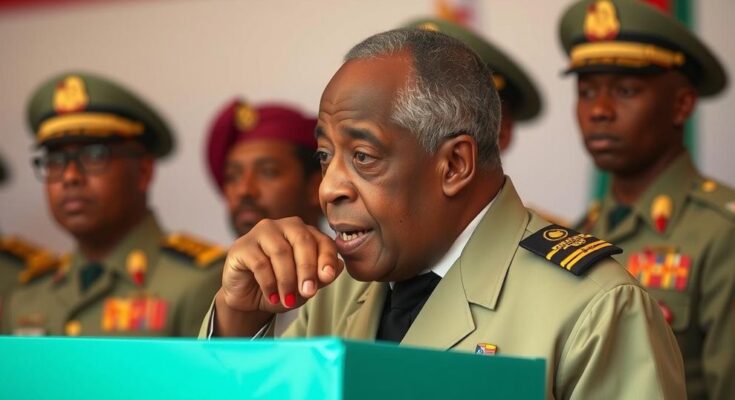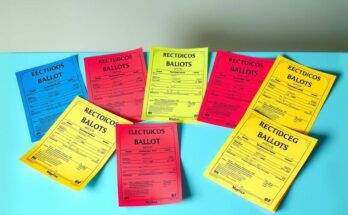Chad held a general election after three years of army rule, but voter turnout was only about 38 percent due to a boycott by opposition parties. President Deby encouraged participation, calling the day historic, while many citizens expressed skepticism about the electoral process amidst allegations of fraud.
Chad conducted a general election on Sunday, deemed critical by the government for transitioning away from military rule after a three-year period. However, voter turnout estimates hovered around a mere 38 percent, significantly influenced by a boycott call from opposition parties who contested the validity of the electoral process. Many voters expressed skepticism about the genuine nature of the elections, citing predetermined outcomes. President Mahamat Idriss Deby Itno, who rose to power in 2021, encouraged participation in the elections, labeling the day as historic. Despite accusations of electoral manipulation and allegations of prior vote falsification, those affiliated with the ruling party stand to benefit from the boycott. Amidst widespread disillusionment, some voters still sought hope for change, highlighting issues such as unemployment and justice in their communities. The opposition reported incidents of ballot disappearance, raising further concerns about electoral integrity. Observers, including foreign representatives, monitored the polling stations while the backdrop of security challenges and social unrest loomed over the electoral process.
The recent general election in Chad marks a significant moment in the nation’s political journey following years of military governance. The ruling government has presented this electoral event as a crucial step toward re-establishing a democratic framework, which was initiated after the military seized power in 2021. Opposition groups have raised serious concerns regarding the credibility of these elections, suggesting that they were designed to reinforce the ruling party’s dominance rather than genuinely reflect the voters’ will. Furthermore, social issues such as economic hardship and climate change have increasingly influenced voters’ distrust towards the electoral process.
The general elections held in Chad revealed profound voter disillusionment amidst allegations of electoral fraud and a boycott initiated by opposition parties. The low turnout rates underscore a significant lack of confidence in the political system, persistently impacting the country’s transition to democracy. With allegations of ballot tampering and a context of ongoing security challenges, the future of Chad’s governance remains uncertain as the nation grapples with the consequences of military rule and seeks to establish a legitimate democratic process.
Original Source: www.rfi.fr




